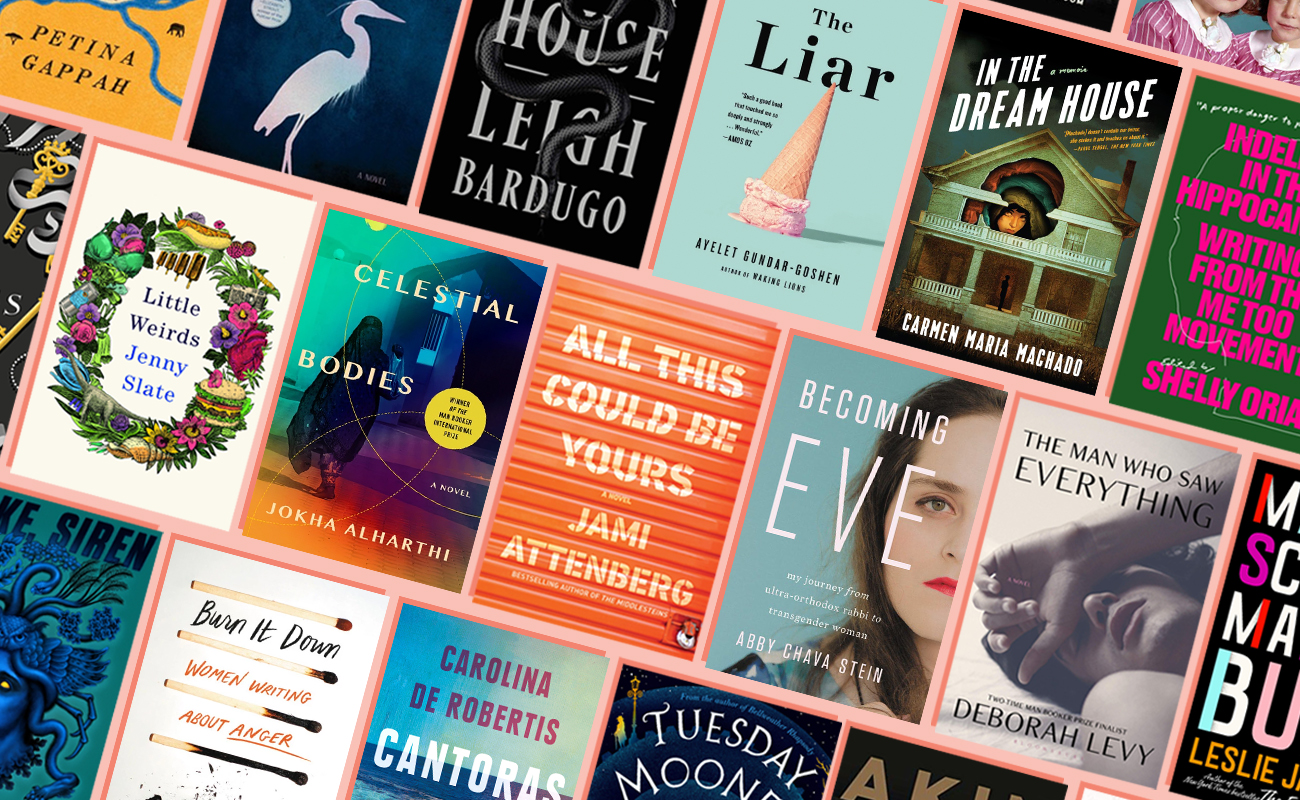People love summer reading, but fall reading is honestly where it’s at. What better time to sit in a park when it’s not sweltering and to curl up with cider and a good book underneath the changing leaves!? Or maybe you live in a place where the weather is the same year-round and seasons are just a construct. I can’t help you there. But what I can do is tell you all about the best books coming out this autumn. (If you can’t wait for their release, may I recommend checking out other great books from 2019? Here are our summer, spring, and winter lists.)
This fall there’s something for everyone, from fiction to non-fiction to sci-fi to historical fiction to memoirs. These 22 books are in no particular order, but they’re all coming out in either September, October, or November. Happy reading!
1. Becoming Eve: My Journey from Ultra-Orthodox Rabbi to Transgender Woman — Abby Stein (November)
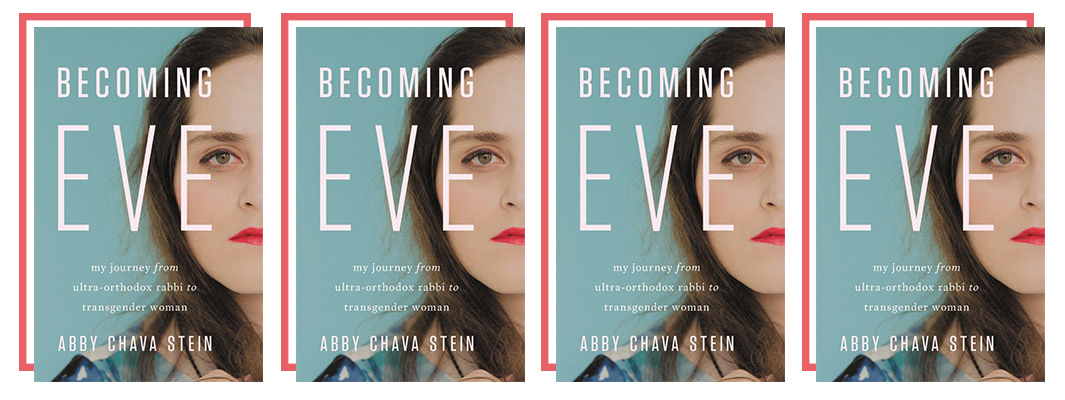
Abby Stein changed queer history when she came out as transgender in 2015. She grew up in an ultra-Orthodox community in Brooklyn — and was ordained as a rabbi — but her journey “off the derech” as a trans woman has made her an outspoken leader in Jewish and queer communities.
Becoming Eve is the story of Abby’s “two interwoven transitions: coming out of Ultra-Orthodoxy, and coming out as a trans woman.” As she writes in the introduction, “I hope in these pages you will find a portrait of a life that every human being can relate to: the vulnerability and the glory, the frustrations and the revelations, the shedding of one identity and growing into another. No agenda, just my story.” Not only is Abby a trailblazer and ridiculously inspiring — she’s a really talented writer. Becoming Eve is not to be missed.
Read if you’re into: memoirs, Jewish stories, peeking into the ultra-Orthodox world. Get it here.
2. Ninth House — Leigh Bardugo (October)
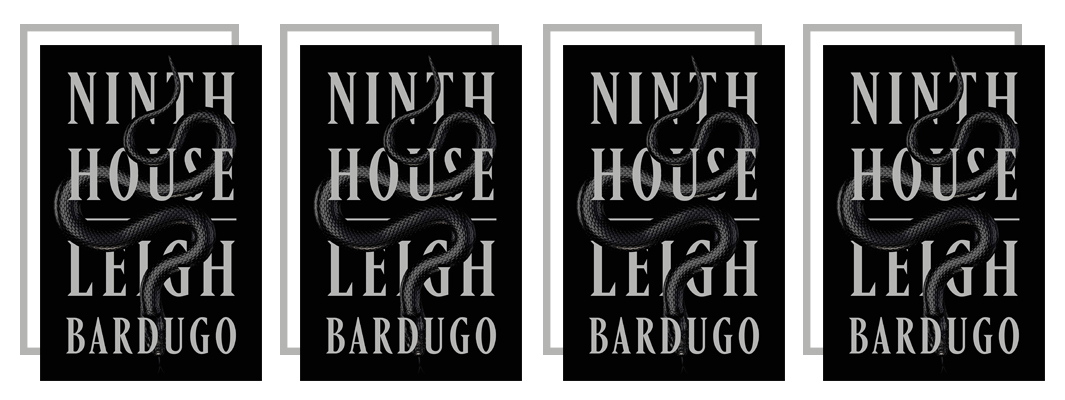
Leigh Bardugo is most famous for her series of YA fantasy novels Six of Crows and Shadow and Bone. The Jewish author (born in Jerusalem, raised in Los Angeles) is now making her debut into adult fiction. (Although, YA is for everyone!! Go read Six of Crows!) Ninth House is set at Yale. It follows the story of antihero Galaxy “Alex” Stern. She’s a 20-year-old high school dropout with a troubled past who mysteriously gets a full ride to Yale… if she agrees to monitor the activities of the eight secret societies on campus. Why? She can see dead people. (Yes, this is a fantasy book.) What Alex uncovers is deeply sinister magic, and I won’t say any more.
Actually, I’ll say one thing more: Alex is Jewish, and early on you learn about “her grandma’s mishmash of Ladino sayings,” and it’s honestly the first time I’ve ever seen Ladino in a major novel, playing a role in the plot. Okay, though, best read unspoiled…
Read if you’re into: fantasy, secret societies, murder mysteries. Get it here.
3. Little Weirds — Jenny Slate (November)
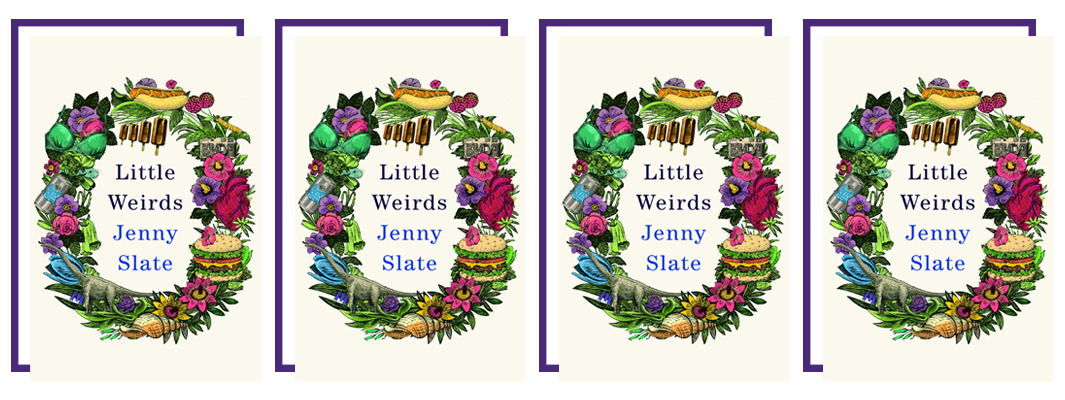
True to the title, Little Weirds is a very weird book. It’s a series of stories, but not really stories, more like vignettes. Jenny Slate (yes, that Jenny Slate!!) writes about growing up in a house haunted by a sea captain, her horniness, friendships, rabbits, and more.
In the penultimate chapter, “Blue Hour,” one of my favorites, she writes about writing in the “blue hour,” the time of morning when it is “cool and blue.” “There is no sun up but it is not night anymore. It is the in-between time that most people say is just for animals to wake up in, the space between day and night when ghosts have to go back to the flat realm where they file away like love letters, apologies, curses.”
Her writing is evocative and distinctive. Little Weirds is, well, weird! But it’s also delightful, funny, meaningful, and you will love it.
Read if you’re into: Is this obvious? Jenny Slate!! Get it here.
4. Tuesday Mooney Talks to Ghosts — Kate Racculia (October)
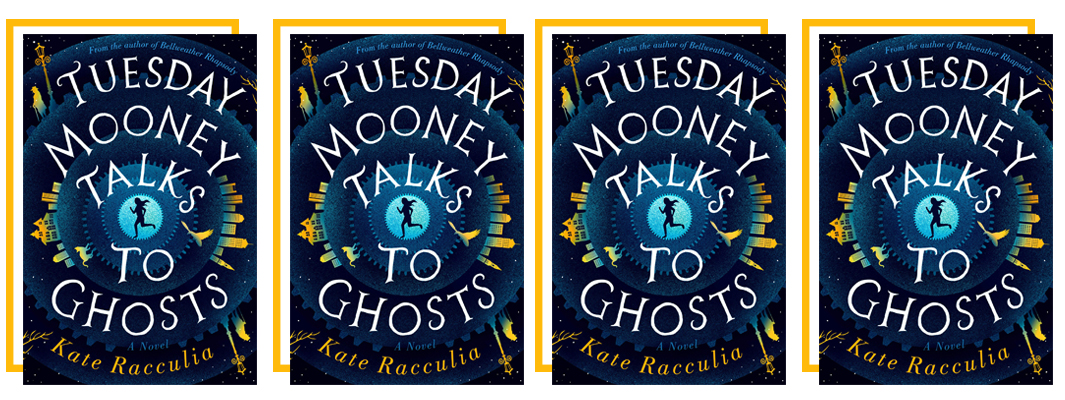
An eccentric billionaire dies in Boston and sends the city on a scavenger hunt for his fortune. The story centers on Tuesday Mooney, who starts to solve the clues. I don’t want to give too much away, but know this: It’s a delightful cast of characters, twisty in the best way, and if you are someone who was into puzzles, this is 100% for you. Author Kate Racculia described her influences in a tweet thread: Indiana Jones, but a woman in the 21st century; Willy Wonka with a horror vibe; Shirley Jackson; a slew of books, including The Eight by Katherine Neville, The Bostonians by Henry James, and The Westing Game by Ellen Raskin.
Read if you’re into: puzzles, mysteries, Ouija boards, spooky books for October, The Westing Game. Get it here.
5. All This Could Be Yours — Jami Attenberg (October)
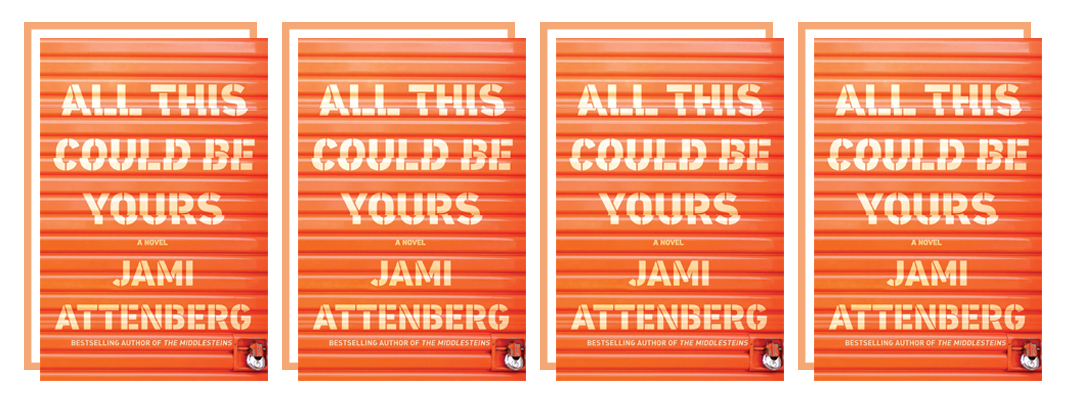
This novel starts with the heart attack of Victor, the family patriarch, and his wife and adult children finding out about it and assembling in New Orleans. The story is set over one long day (the sections are titled as different parts of the day), but it goes backwards and forwards in time to dive into the lives of each character. Victor is, from the moment you meet him, super unlikeable and an objectively bad guy. Attenberg peels back the layers of each character until it feels like you have known this family your whole life.
Attenberg explains, “Essentially, I was just fascinated with how death impacts a family. It’s not something I cared about much when I was a younger writer, but I’m really sliding into my mortality issues very nicely as time has gone on. Fits me like a damn glove. I was also interested in the idea of characters gathering around a dying family member they didn’t like very much – I mean, no one likes this guy. That’s just an instant stake to me, and a weirdly humorous one. I like my mortality issues with a side of comedy.” It’s Jewish writer Attenberg’s seventh novel (lucky number seven?), and Kirkus has named her the “poet laureate of difficult families,” saying the novel “captures the relentlessly lonely beauty of being alive.” Amen.
Read if you’re into: family sagas! Family secrets! Humorous mortality! Get it here.
6. Cantoras — Carolina de Robertis (September)
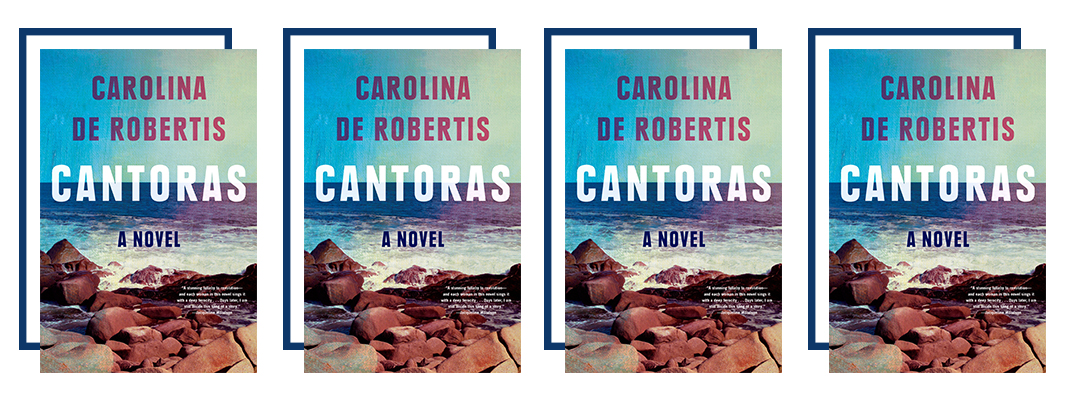
Set in 1977 Uruguay under a military dictatorship, five queer women escape to the seaside for one week to live in freedom. This week will shift the course of their lives — and the novel follows them over the decades as they return to their oasis. One of the five women, Romina, is the daughter of Jewish refugees from Eastern Europe. Her grandmother was the sole survivor of a pogrom. The others in the group — Flaca, Anita, Malena, and Paz — all have unique and fascinating stories, and the narration shifts throughout each of their perspectives. The story focuses on their relationships, how they deal with living under dictatorship, and how they imagine the future. A beautiful novel.
Read if you’re into: found family, queer stories, political history. Get it here.
7. Indelible in the Hippocampus: Writings from the Me Too Movement — edited by Shelly Oria (September)
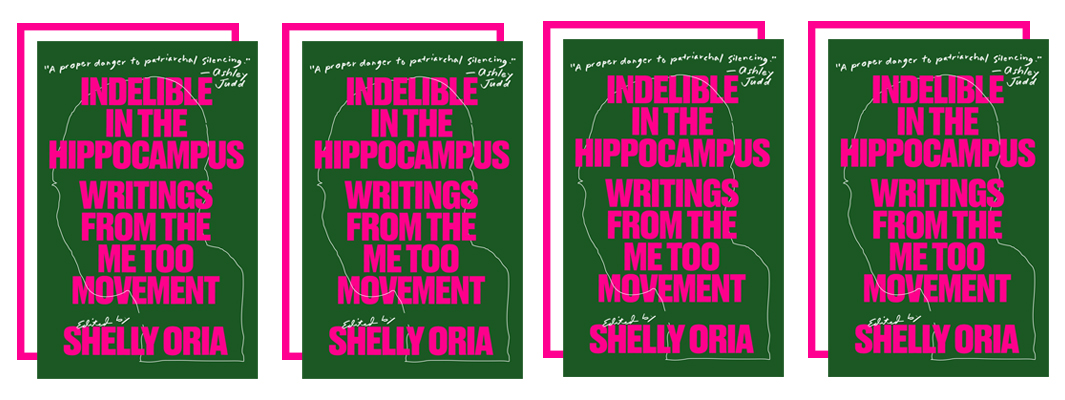
Testifying against Brett Kavanaugh, Dr. Christine Blasey Ford said, “Indelible in the hippocampus is the laughter. The uproarious laughter between the two, and their having fun at my expense.” That quote became the title for this collection of writings about sexual assault and rape.
Shelly Oria, an Israeli-American author, has edited a collection of writing centered on the #MeToo movement. There are 22 diverse voices in Indelible — including trans women, queer women, Jewish women, and women of color. The stories are a mix of fiction, creative nonfiction, and poetry. There’s even one (by Elissa Schappell) that’s structured as e-mails from an editor to a writer who is telling a #MeToo story. As Kirkus writes, “Amplifying the voices of survivors, the collection offers humor and power alongside trauma and pain.”
Read if you’re into: this is kind of a weird one to say read if you’re into #MeToo, but read if you’re into stories about #MeToo. Also social justice, intersectional feminism, stories by survivors. Get it here.
8. Burn It Down: Women Writing about Anger — edited by Lilly Dancyger (October)
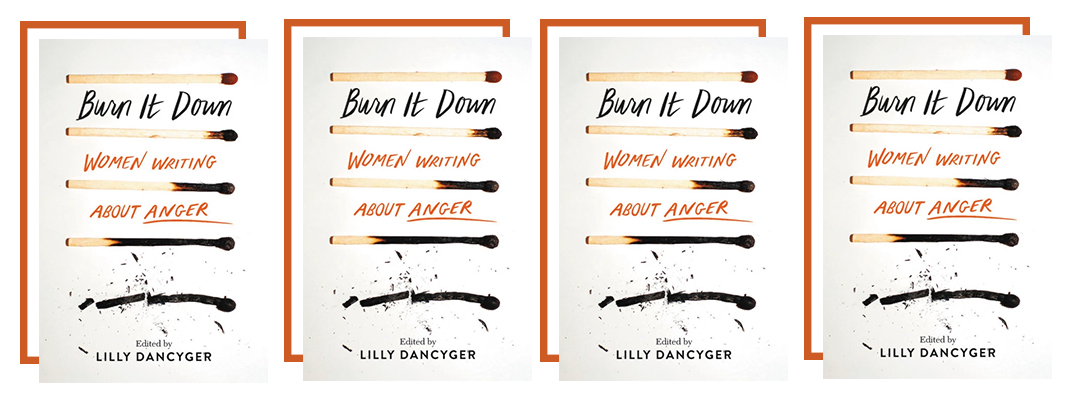
In the introduction to Burn It Down, Lilly Dancyger writes, “Every woman I know is angry. But this anthology is not about the things that make us angry; it’s about us, and all the many ways we feel and live with our anger.” Dancyger, a Jewish writer, gathered 22 diverse voices for her anthology, Burn It Down, to write on women’s anger. They write about discovering their anger, ignoring it, and channeling it. There are essays on toxic tropes (like the “angry Black woman” stereotype) and the concept of “hangry.”
My favorite blurb is from Sophia Shalmiyev, who writes, “Burn It Down is a potent literary offering — a revolution born within the collective rage — expressed, unleashed, sublimated, and capsuled to honor our feminist legacy. Scorched earth speaks through these brilliant women who teach us that vulnerability and ire writ large will save those who have been shamed and condemned. Glorious, punk as hell, and utterly necessary.” Let’s just re-emphasize that last line: glorious, punk as hell, and utterly necessary.
Read if you’re into: again, feels weird to be like “read if you’re into anger,” but, read if you’re into channeling your rage. If you’re into catharsis and into burning it all down. Get it here.
9. The Man Who Saw Everything – Deborah Levy (October)

This book is advertised as “an electrifying and audacious novel about beauty, envy, and carelessness,” and honestly, yeah.
The story follows Saul Adler, a young British Jewish historian who travels to East Berlin in 1988. Before he goes, he learns his host sister is obsessed with the Beatles. So, he heads to Abbey Road to have his girlfriend, a photographer, take a photo of him crossing Abbey Road to give to her. There, he is hit by a car. After (unrelated), his girlfriend breaks up with him, and he goes to East Berlin as planned. There, he has two intense relationships with a man, Walter, and a woman, Lena. (They happen to be siblings.) In 2016, years later, he is again hit by a car at Abbey Road. The stories intertwine in a way I won’t spoil for you… The Man Who Saw Everything is story of Saul going to East Berlin, yes, but it’s also about living under a security state, about desire, about family and selfishness.
Read if you’re into: literary fiction, twisty plots, writing about sexuality. Get it here.
10. Celestial Bodies — Jokha Alharthi (translated by Marilyn Booth) (October)
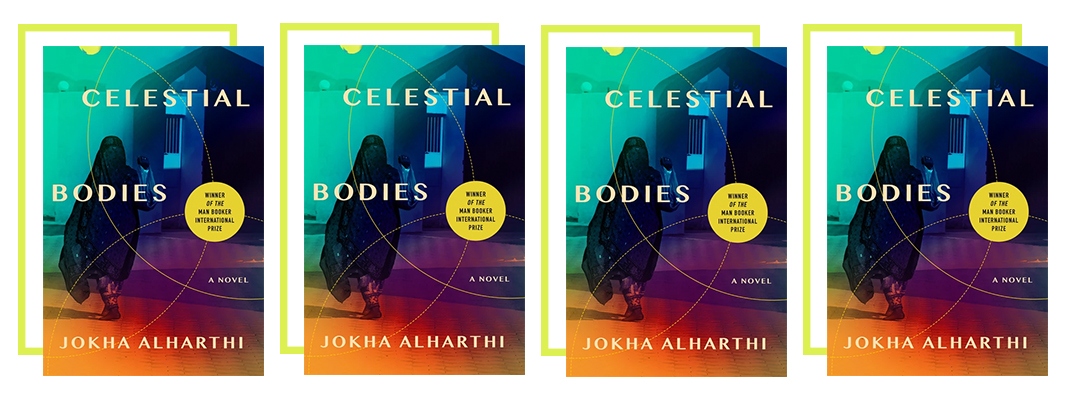
Jokha Alharthi’s Celestial Bodies was the first-ever book written in Arabic to win the International Booker Prize. (A big deal!) Alharthi is also the first ever Omani woman to have a book translated into English, and although it came out in 2010 in her native Oman, it will be published in the U.S. this fall. (Lit Hub calls the publication a “major, exciting literary event.”) In the novel, Alharthi transports you to Oman through the eyes of one family. The narration weaves back and forth in time, and through the perspectives of multiple characters, but it never feels confusing.
As Aida Edemariam writes in The Guardian, “To say that Celestial Bodies is a multi-generational saga simplifies what Alharthi has done, which is also to tell the story of how Oman has changed over the last century, from a traditional rural patriarchal society where Islam was complemented by Zār spirit worship, and which was among the last countries in the world to abolish slavery (in 1970), to an urban, oil-rich Gulf state.” All in all: worth your time.
Read if you’re into: historical novels, family sagas, and “major literary events”! Get it here.
11. A Song for a New Day — Sarah Pinsker (September)
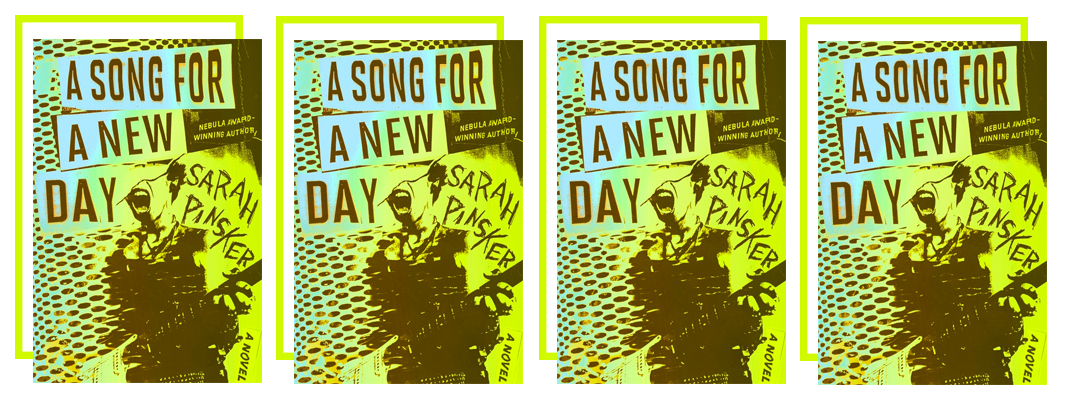
A Song for a New Day is Jewish author and musician Sarah Pinsker’s first novel, and it is set in a world that’s not quite ours, some time in the near future. The plot centers on two women: Luce and Rosemary. Luce went off the derech (the term for leaving an insular Hasidic community) when she was a teenager. The book starts just as she’s beginning to make it big as a musician. She keeps her past private to her bandmates (“But what to say? What difference did it make that I’d run away at fifteen rather than tell my frum parents and six siblings I was queer?”) until terror attacks and a deadly disease begin to strike and public gatherings are banned. Luce starts performing in illegal concerts. Meanwhile, Rosemary works for a company that streams concerts to a virtual reality — so no one has to ever leave their home. She gets hired as a talent recruiter to try and find musicians performing in these illegal concerts and encourage them to come get recorded for a VR concert. I won’t spoil too much more, but Luce and Rosemary’s stories overlap…
Read if you’re into: science fiction, dystopia, music. Get it here.
12. Wake, Siren: Ovid Resung — Nina MacLaughlin (November)
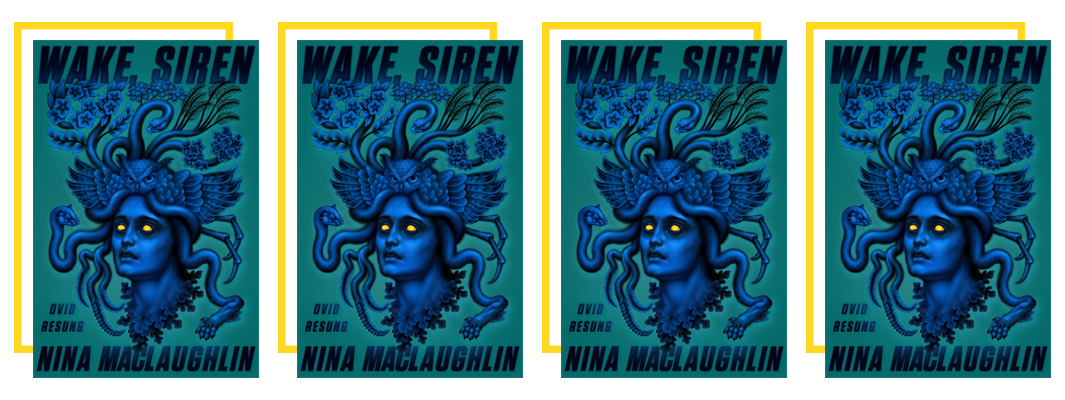
The line from the description of this book that hooked me immediately? “Nina MacLaughlin recovers what is lost when the stories of women are told and translated by men.” Sign me up!
Wake, Siren uses Ovid’s Metamorphoses as source material — which has the stories of everything from Hercules to Icarus to the Fall of Troy. MacLaughlin, however, doesn’t focus on the male heroes of these stories but rather the female characters (who often took a secondary role, or were killed or raped). We hear from the nymphs and the goddesses often at the margins of the stories. And, instead of fully setting the stories in Ancient Greece, MacLaughlin sets them in a time that is both past and present.
Read if you’re into: Greek myths, reclaiming the female narrative. Get it here.
13. The Liar — Ayelet Gundar-Goshen (translated by Sondra Silverston) (September)
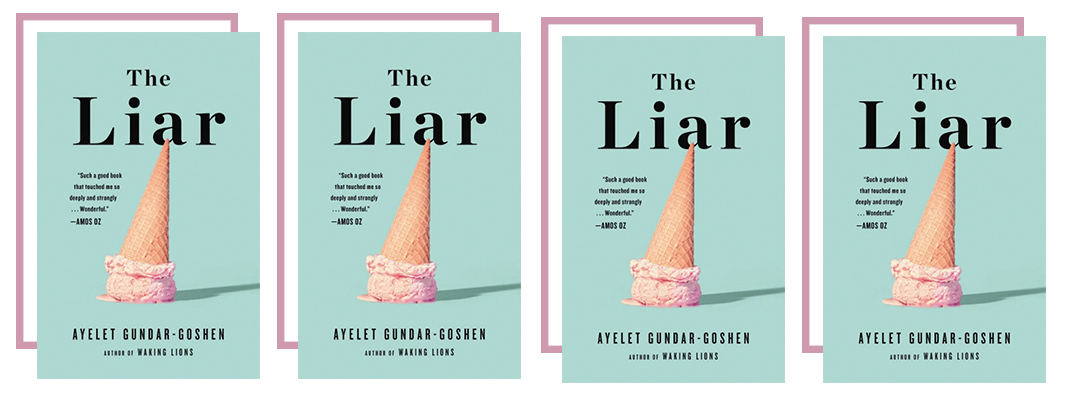
In The Liar, 17-year-old Nofar works at an ice cream shop and inadvertently falsely accuses a past-his-prime musician of sexual assault. If you’re thinking woah and/or why, don’t worry: I was right there with you, but I was quickly won over by her powerful writing. The Liar is a lot more than just the premise of a false sexual assault allegation; Israeli writer Ayelet Gundar-Goshen dives into the moral dimensions of lying and how lies take on a life of their own. Nofar’s lie isn’t the only lie that propels the story forward. Like her past novels Waking Lions and One Night, Markovitch, Gundar-Goshen draws on her clinical psychology training to get into the psyches of her characters.
The Liar a compelling story by one of Israel’s most exciting novelists, and I couldn’t put it down.
Read if you’re into: moral dilemmas, Israeli novels, dark humor. Get it here.
14. In the Dream House — Carmen Maria Machado (November)
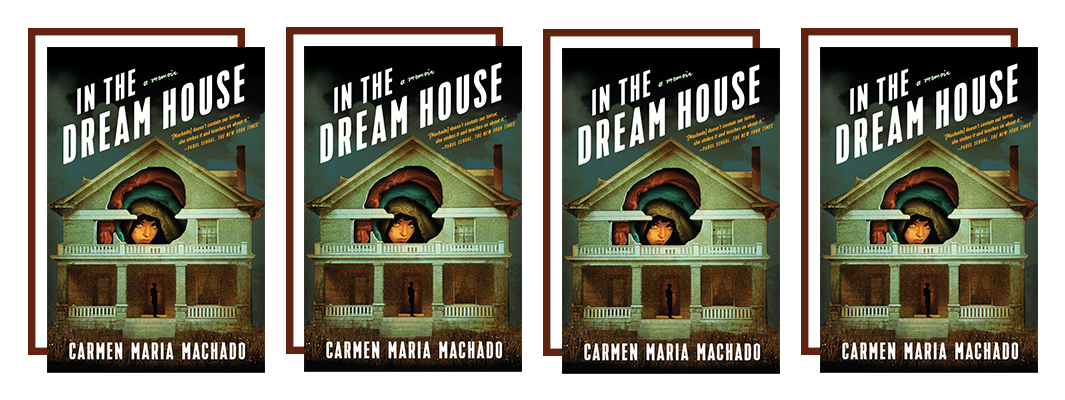
If you can’t stop thinking about Carmen Maria Machado’s Her Body and Other Parties, you are not alone. (That SVU short story alone!) Thankfully, she’s back, this time with a memoir. In the Dream House is Machado’s account of a queer domestic violence. But it’s not only her story, but the history of domestic abuse between queer women.
“It’s a really intense topic,” Machado told EW. “It was difficult emotionally. And it required me to stretch my comfort zone way past where I normally do. I’m not a historian. I’m not a traditionally trained journalist. [It] took a lot out of me. The book also took much longer than I thought it was going to. By the time I was done, I was like, ‘Wow, I never want to do that again!'”
Read if you’re into: memoirs, queer stories, cultural reporting mixed with personal stories. Get it here.
15. Akin — Emma Donoghue (September)
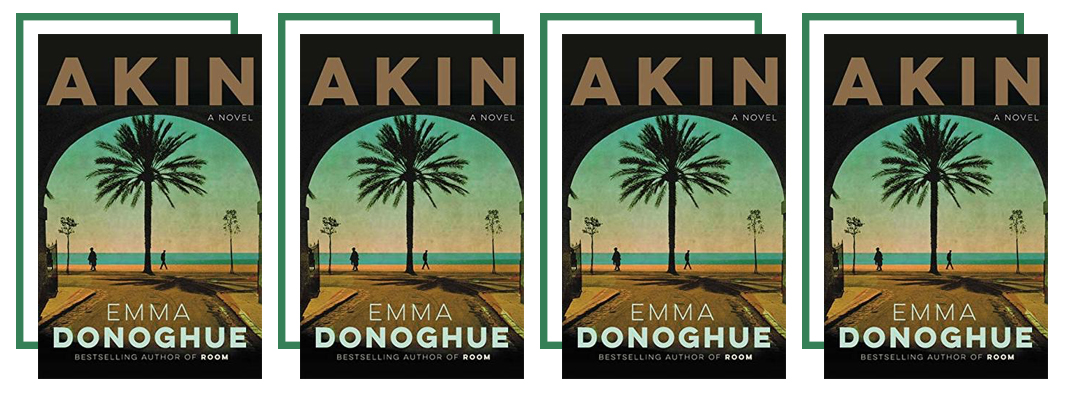
In Akin, 80-year-old Noah Selvaggio returns to Nice, France for the first time since he was a child living under the Nazi occupation. Not a planned part of his trip? His 11-year-old grand-nephew, Michael, who Child Services placed with him as the closest living relative after family troubles. In his journey back to his place of birth, Noah tries to discover if his mother was part of the resistance, helping Jewish children hide, or if she was working as a collaborator, all the while trying to connect with an 11-year-old whose mother is in prison, father is dead, and comes from a very different part of New York than Noah. They’re quite the odd duo — but that’s what makes Akin work so well.
Akin is at once a work of historical fiction (diving into what happened in Nazi-occupied France), a mystery (Noah trying to uncover his mother’s wartime secrets), and a tale of a complex troubled family (Michael’s whole story).
Read if you’re into: historical fiction, troubled families, odd couples. Get it here.
16. Make It Scream, Make It Burn — Leslie Jamison (September)
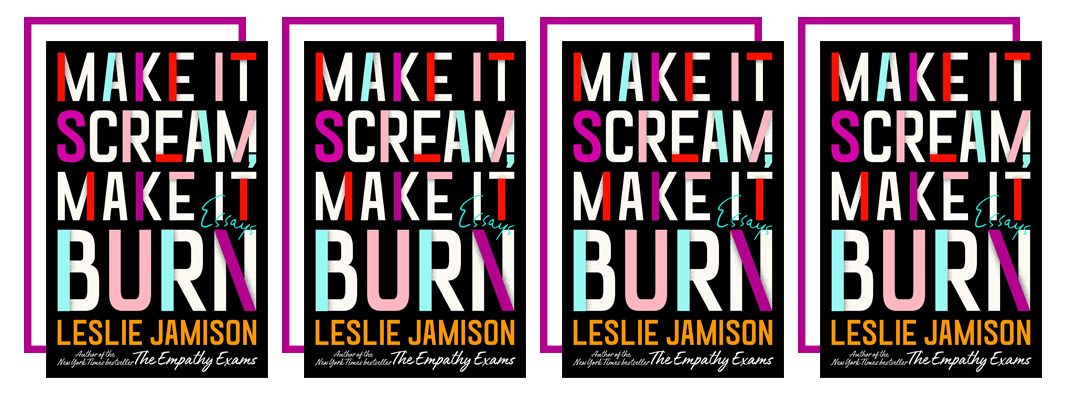
Leslie Jamison, author of The Empathy Exams and The Recovering, both of which established her as one of the greatest non-fiction writers of our generation, is back, this time with a collection of 14 essays. (Jamison also has an essay in Dancyger’s collection Burn It Down, above.) The title is inspired by the poet William Carlos Williams, who describes Walker Evans’s photography of ordinary life: “What the artist does applies to everything, every day, everywhere to quicken and elucidate, to fortify and enlarge the life about him and make it eloquent—to make it scream.”
I’ll actually just let Jamison describe the collection to you:
“Over the course of the seven years I spent working on this book, my life changed in fundamental ways. I met my husband. I became a stepmother. I had a baby girl. I realized that it’s sometimes easier to long for what’s far away than it is to live with what’s close at hand. At first, I thought this collection was about the connection between desire and distance, about being obsessed with what we can’t fully grasp: the mystery of prior lives, the metaphor of a lonely whale, the allure of an online avatar. But eventually, I realized that it was just as interested in what’s right in front of us. How do we keep showing up for our daily lives? How do we keep reinventing them? If this book began as an exploration of longing, then it ended up becoming an exploration of dwelling.”
Read if you’re into: essays, journalism, reflections on the ordinary. Get it here.
17. Out of Darkness, Shining Light — Petina Gappah (September)
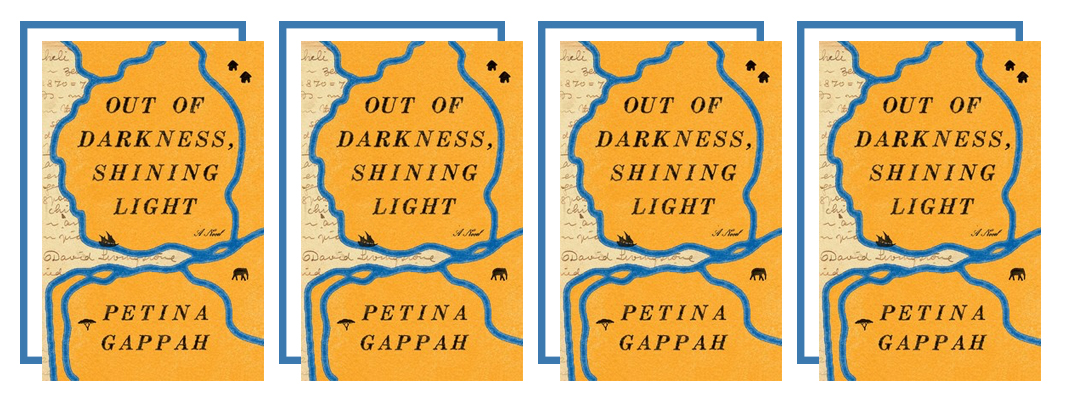
David Livingstone was a Christian missionary explorer in Africa; after his death, African men and women carried his body, work, and maps across the continent — from present-day Zambia to the coast — so he could be returned home to England. Inadvertently, these maps became one of the ways colonial forces invaded in the “scramble for Africa.” The story of Livingstone has been told many times, as Petina Gappah writes in the prologue of her book, but never from the perspective of Africans. Out of Darkness, Shining Light alternates perspectives between two former slaves, Halima and Jacob, as they bring Livingstone to the shore.
Read if you’re into: historical fiction!!!! Get it here.
18. How Rory Thorne Destroyed the Multiverse — K. Eason (October)
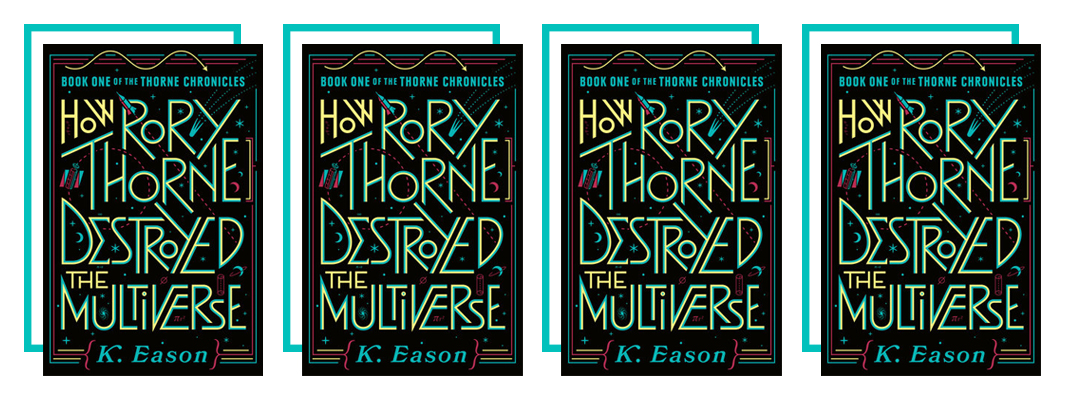
Take a deep breath, close your eyes, and picture outer space plus fairy tales plus political intrigue plus magic. Whatever you’re thinking of, How Rory Thorne Destroyed the Multiverse is all those things, but better. K. Eason describes her book as “Princess Leia meets the Princess Bride with spaceships and magic and a grumpy cyborg.”
Rory Thorne is the first daughter in 10 generations — she’s descended from Sleeping Beauty, lives on a planet in outer space. Like the tale of Sleeping Beauty, Rory, a princess, is given gifts by fairies — and one curse. Hers? That she will know truth when she hears it, and “find no comfort in illusion or platitude.” Rory grows up and is sent to another planet as part of a truce – she’s to marry their prince. What she finds there? No prince, but a political conspiracy. Rory is a headstrong and courageous protagonist, and the setting of space isn’t as challenging to wrap your head around as you think it may be. The story is narrated by someone in the future (think: Jane the Virgin‘s narrator, kinda) — and it unfolds in a deeply engaging manner.
Read if you’re into: science fiction, fairy tales, and magic. Get it here.
19. Birthright – Erika Dreifus (November)
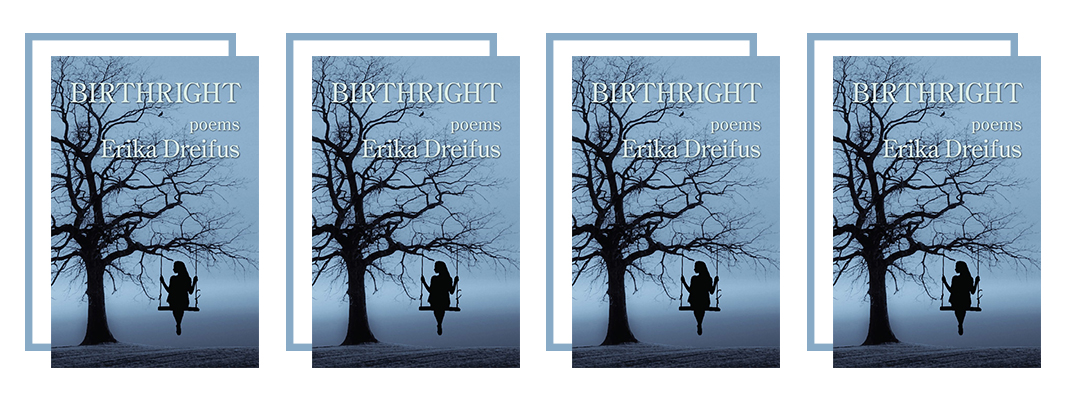
If you’re someone who appreciates fresh poetry with overtly Jewish themes, this is the collection for you. Dreifus’ first book of poems (she previously published a story collection called Quiet Americans) explores what it means to be a woman, a Jew, a grandchild of refugees from Nazi Germany, and — perhaps most Jewish of all — a New Yorker. In “Kaddish for My Uterus,” Dreifus takes on the language of prayer: “Exalted and hallowed be Surgery’s great name / in the world where none of my gynecologist’s earlier ideas— / not the differently-dosed birth control pills, / nor a specific intrauterine device, / nor a D&C—put an end to the mischief / of those four fibroids, / to a daily life constrained by the mess, the pain, / the sheer weariness of endless blood and clots.” In “The Book of Vashti,” the banished queen from the Purim story speaks out.
Read if you’re into: Jewish poetry, duh. More info here.
20. The Starless Sea — Erin Morgenstern (November)
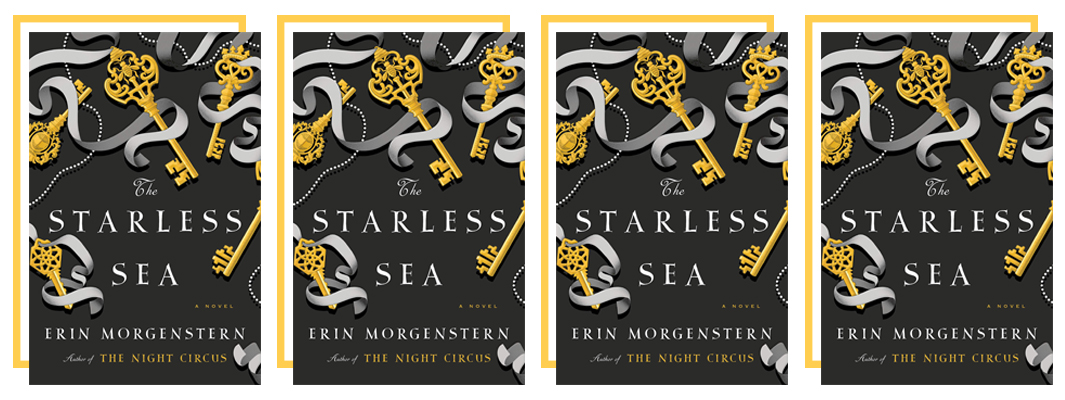
Zachary is a graduate student in Vermont studying video games when he discovers a mysterious book in the library. The book tells the story of an ancient underground library on something called the starless sea. The book also tells the story of a fortune teller’s son — Zachary. Confused how his childhood ended up in this book, Zachary sets out to find answers. Morgenstern beautifully constructs a world for you to get lost in. If you, like me, loved her first book (The Night Circus, also magical and wondrous and so well told), this is a fantastic follow-up.
“When I started working on my new novel, I thought I was writing a book about books, but as it turns out I was writing a book about stories. Stories and choices and change and also time and fate and video games. It took quite a while to get it all to fit in a single book, even down to the bees,” Morgenstern explained.
Read if you’re into: magic, secret societies, libraries, stories. Is it weird to write read if you’re into “stories”? But really, The Starless Sea is a meditation on stories. Just go read it. Get it here.
21. The Grammarians — Cathleen Schine (September)
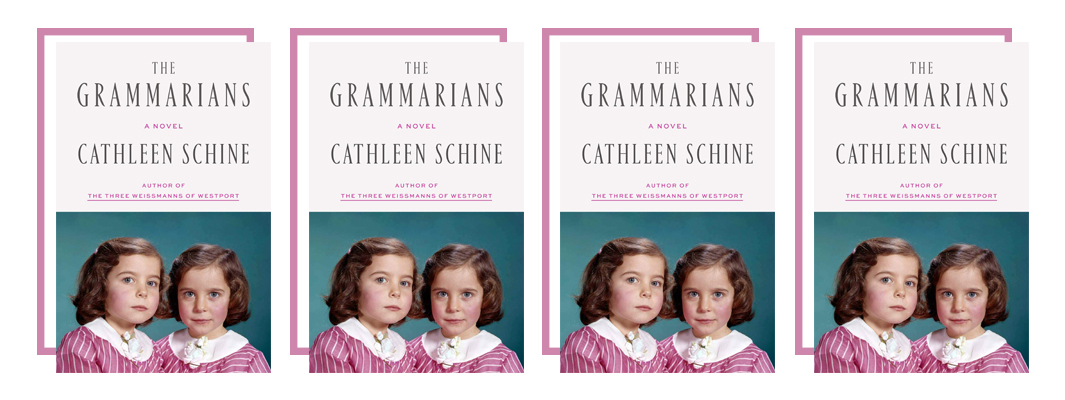
Cathleen Schine has been called “a modern-day Jewish Jane Austen,” so how could we not include her newest on our fall books preview!? The Grammarians is the story of two identical twins who are obsessed with language. They grow up and go different in ways — Daphne becomes a copy editor and grammar columnist, whereas Laurel ends up writing poetry that defies grammar rules. The story follows them from birth through old age.
Here’s author Sigrid Nunez’s blurb, which made me want to read it immediately: “The mother of the beguilingly unusual twins whose lives unfold in this sublime comic novel could not adore them more than I do. A singular delight for anyone who has ever marveled at the quirks and beauties and frustrations of English grammar, and a fascinating portrait of the passions and dramas of fierce familial love.”
Read if you’re into: comic novels, families, the English language. Get it here.
22. The World That We Knew — Alice Hoffman (September)

Who else to end our fall books preview with other than Alice Hoffman? Hoffman’s 28th (!!!) adult novel is set in Berlin in 1941. The plot begins with Hanni Kohn, who wants to protect her 12-year-old daughter Lea from the horrors of the Nazis. She seeks out a renowned rabbi, but his daughter, Ettie, is the one who actually helps. Ettie creates a golem (a magical clay creature) who is sworn to protect Lea. Ettie and Lea then escape from Germany to France, where Ettie becomes a Resistance fighter and Lea ends up hiding in a convent. Ava, the golem, is a key part of the story, and so is Azriel, the Angel of Death.
Read if you’re into: Jewish myths, historical fiction, magic. Get it here.
Now go enjoy some midnight margaritas and celebrate autumn.
Disclosure: This post contains Amazon affiliate links, which means we may receive a commission if you click a link and purchase something. While clicking these links won’t cost you any extra money, they will help us keep this site up and running. Thanks!
